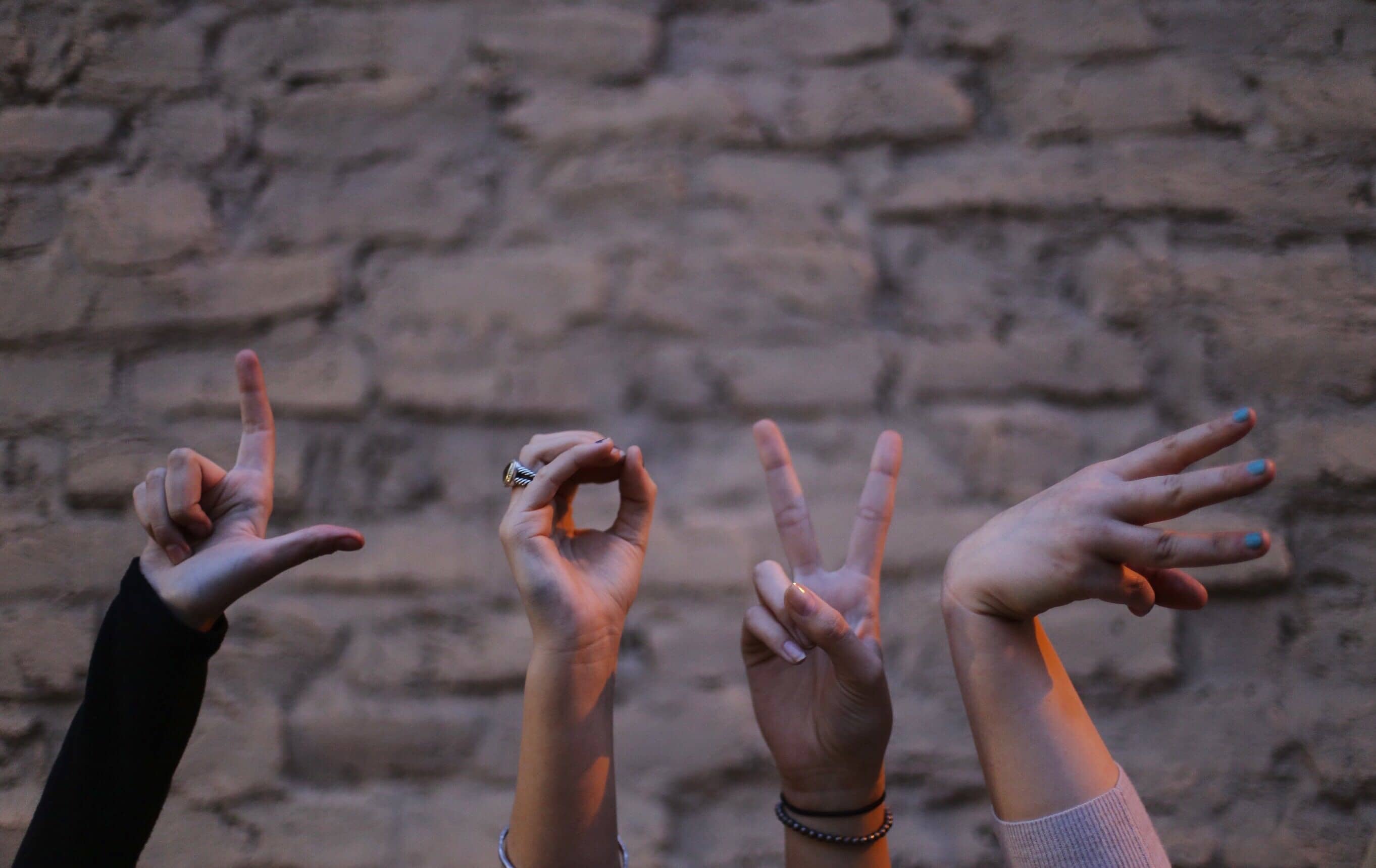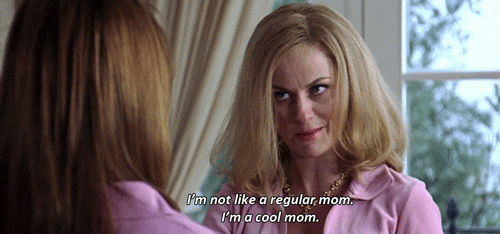I can’t tell you how many times I have been told that the key to a successful marriage is putting your husband above your children. Every time someone has said this to me it strikes my intuition the wrong way. Like I might kinda physically twitch when I hear it.

Heres my logic:
My husband is so important to me! I love being married to him and we wasted no time getting started having kids. I hear what people are saying underneath this advice and that is this; it’s hard to be in a partnership and have small children.
It really is a slow boil though, you are not thrown all of it at once. First, in pregnancy, it may start off that you can’t stay awake to catch up after dinner. Then you have the baby and your conversations are frequently interrupted by hungry/sleepy/dirty baby. Then they start to move and you are in the middle of a sentence when you realize they are about to walk right into the table or about to trip over a shoe they put in the walkway five minutes earlier. Then they start to talk. Then they need to be a part of the conversation and before you know it all your conversations are about Thomas the freaking Tank Engine and My Little Ponies.

All that being said- I get it. It’s hard and you have to be conscious if you are going to make it out together.
What does’t jive with me is the mindset created when you say you need to put your partner above your child.
Let’s think for a second. How capable is your partner of finding someone (besides you) to talk about feelings with? How capable are they of identifying their feelings all on their own and bringing them to you? How capable are they of caring for themselves? (Now I know you may have said “not a lot” to all these questions but thats another post for another day 🙂 ) (Double side note-I am not suggesting that your partner wanting to do all of these things with you is bad- just making a point that they are physically capable of doing so.)
Now let’s think of your child. Who else does that child have to go to with their needs and feelings?? NO ONE. How well can that child articulate its feelings in a concise matter? Not at all. Who are the primary people who are there for these little beings? You and your partner.
So before you run away with overwhelming feeling regarding their needs and how to love everyone- lets think for a minute. We want our partnership to last. Its really hard with kids. Our kids need us entirely.
So how do we fit all these neat facts together?
Well here is what I have decided. Why do we EVEN have to choose one over the other? I mean it’s different people, different kinds of love. SO why all the pressure to choose one or the other? It seems like our culture has this view that love is a limited resource. Like I only have five loves to give so I have to delegate who will get what.

When you think about that for a second you start to realize how messed up that is. I don’t need to take love from anyone to give to another and that is because love is not measured like that. Love is like energy. It is present and it can be shared. You can grow more love all the time.
Why don’t we just get rid of the idea that we have to delegate our love all together and just sit with the facts:
We want to be with our partner.
We love our kids.
They need us.
This shit is hard.
Boom. There you go. Its so much easier when we just let emotions co-exsist! Now let’s talk about some practical things we can do to make it easier and we have almost solved the worlds problems!
Here are there 8 steps to connecting with your partner in a lasting and meaningful way.
1: Self Awareness
The big bad wolf of emotions! This big daddy can take anything you feel and turn it into a productive piece of your being! So what is self awareness?? Basically, its just learning to hear the things you are feeling and identifying what things signal these feelings inside you. That sounds easy, right???? Wrong.
Here’s where the problem with self awareness comes in, most of the time in society, somewhere along the lines we get told to bury that shit deep down inside and never let anyone see it ever. In order to do that, we may have had to numb some parts of ourselves that were to hard to conceal. The thing is that there is no localized anesthesia for our feelings. Once you start the numbing process it can be very hard to control where it spreads.
So, basically, a lot of us are dealing with some pretty intense self awareness issues. The good news is there are things you can do to help!
First, find a good outlet for you to say out loud what you are thinking and feeling. Some ideas might be a journal, a close friend, or a counselor. These are all great ways to access your inner feelings.
Next part? You just let go of any ideal of what you “should” look like and intentionally be with your feelings AS THEY ARE. Feelings and emotions will come at you in different paces and you should not try to control this, just be with what is within you.
There are some great books out there to help you start to ask questions about your needs and feelings, one I really recommend is The Five Love Languages. Ask yourself these questions:
What do you need to feel connected?
What is your love language?
Are there any areas of your relationship that you need to talk about?
What makes you feel sad or mad?
What are your fears?
Write these things down and remember it is so important to just be. Trying to control and manipulate our feelings is what leads to unintentional numbing.
2: Identifying Defensive Behavior
Learn what you look like when you are being defensive. There are some very common behaviors that are signs of defensiveness, understanding these is key to understanding each other.
The goal behind knowing these things is to set cues for yourself so when you see yourself behaving in certain ways you can stop, say I am being defensive. Then you can address what feeling you are trying to avoid by being defensive.
You can learn more about defensive behaviors here.
3: Practicing Compassionate Listening
L. R. Knost has been quoted saying “When our little people are overwhelmed by big emotions it is our job to share our calm, not join their chaos.”
This is a skill though, that once mastered has the potential to heal and grow all relationships in your life. SOOOO what exactly does it mean?
Well you know those moments when you are just minding your business and maybe you make a comment to your partner or you do something and it just strikes them the wrong way? Maybe you were already fighting and your partner seems to be getting really REALLY upset by the conversation.
Meeting them in their chaos is thinking, “Why are they yelling? I am going to yell back.”
If, however, we can take our partners extreme emotions as a cue to stop, take a step back and be compassionate. We can see and hear what is really going on. They are being triggered. It is not us that they are yelling at however the thing that has triggered them.
We can then do one of two things. One thing we can do is try to approach them with love by saying “I see you are really upset right now. Can we pause this conversation and talk about that?”
This approach is great, but it will not always work. That is because it is sometimes hard to leave the part of your brain that causes these defensive and angry behaviors and come back to the part that allows us to talk consciously about our feelings.
So sometimes the best thing is to say, “I see you are really, upset. I do not want to be yelled at, so we can try talking about this when you have calmed down.” Then walk away, and do not engage in the argument anymore.
When you are able to talk more calmly, please share how their yelling made you feel. It is valid and important. Compassionate listening does not mean that it is okay for someone to hurt you through their words or tone, it means understanding that when your partner is triggered they may not be able to honor your feelings and that returning their upset energy will not help either of you.
*** If you are in a relationship where you are afraid for your safety or where you are being hurt through yelling, abusive comments or physically you need to seek help ASAP. This is not where compassionate listening comes in. In these situations you need to protect yourself and find safety.
Last part to this is listening. Your partner being upset was a distraction from the real issue. So when your partner can join you at your calm, hear what that trigger was and work together to grow away from these types of experiences.
4: Mindful Wording:
There are two things that can take a productive conversation and stop them in their tracks. Extreme or polarizing statements (Eg. You Always, or You never) and a barrage of YOU statements.
Make it a rule, and talk about it. In my relationships we don’t do always or never statements. The minute one slips from our mouths we stop ourselves and re-phrase it.
You may be thinking “they know what I mean” or “thats how I feel” but they don’t, and its not. There may be like one exception to the argument that you really feel that way, but if you stop and really honestly try, I am certain you will be able to come up with one time when your partner did or didn’t do what you are saying.
Additionally these phrases are overwhelming and unproductive. How do you fix something that you ALWAYS do. Instead talk about specific instances or focus on your “I” statements.
“I” statements are HUGE. if you can be mindful and only say things that start with “I” You will see you and your partners ability to be receptive sky rocket. There should never be any discrediting of the way you feel. Its not up for debate because you are the only one who can experience it. However “you” statements are up for debate and unproductive because it usually spurs defensiveness verses reflectiveness.
These things may seem small or insignificant, but just try it. You will see how much they can help.
5: Relational Affirmations
How often do you verbally say out loud the things you DO like about your relationship and your partner? We are usually really good about letting someone know when we don’t like things, but its equally as important to let people know when we do love things.
List five things you like about your partner or your relationship right now, then say them out loud to your partner. Maybe all at once or maybe one here and there, but let them know- it will help a lot.
6: Setting Clear Intentions
Me and my husband have this tradition, sometimes we get bad about it but the idea is that every new moon and full moon we sit down, with our family and set intentions for ourselves and for our family. We usually have a few categories like personal intention, physical intention, job intentions, etc.
This is so awesome because it helps us experience our growth together. I know what ways my husband wants to grow and he knows how I want to grow. Then when we see each other actually growing in those ways we can celebrate it together. We can also, very respectfully help hold each other accountable for our goals.
It also helps us to have a constant idea of what things our partner is valuing and what values we share. Perpetual growth is essential for a healthy couple (healthy individuals as well) and doing it together encourages communication and comradery!
7: Having Fun and Scheduling It Regularly
This is nothing new, but it is HUGE! Go have fun! Go on dates! Spend a night every week with out TV on and no Facebook just really connecting, face to face. Watching shows is a great way to relax and this is not meant to give you guilt for watching TV but you HAVE TO set aside some time when you are really seeing each other, looking at a TV screen does not facilitate this time.
8: The Couple That Meditates Together Stays Together
Lastly but certainly not least, you both need to be meditating. This will facilitate all the things on this list, and encourages mindfulness and self awareness. Learning how to identify the layers of what is going on inside of you will create areas for you to connect upon and help you to really be available for loving your partner.
You can mediate together before you hang out, or just do it on your own. Either way find time to really invest in your mind and heart and your relationship will be so much better for it!
Thats it you guys! Do you have any things you would add to this list??? How do you stay connected?



























 You may long for your life before the baby came. The peace, the ability to care for yourself, the time to take a shower or put on your favorite outfit. You may be sitting in your dirty spit up stained pajamas right now not knowing if you will ever get another shower again. You may have never known how large your threshold was for wearing another human’s bodily fluids… but who has time to change anyway!
You may long for your life before the baby came. The peace, the ability to care for yourself, the time to take a shower or put on your favorite outfit. You may be sitting in your dirty spit up stained pajamas right now not knowing if you will ever get another shower again. You may have never known how large your threshold was for wearing another human’s bodily fluids… but who has time to change anyway!
